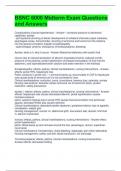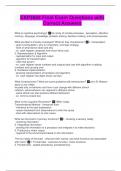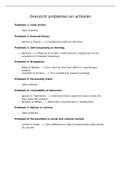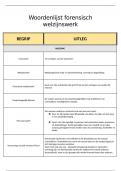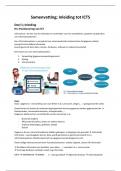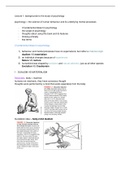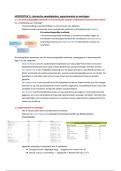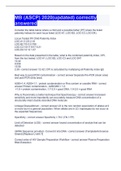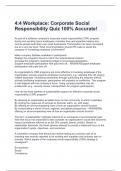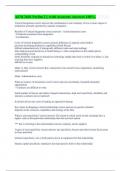Tentamen (uitwerkingen)
BSNC 6000 Midterm Exam Questions and Answers
- Vak
- Instelling
BSNC 6000 Midterm Exam Questions and Answers Complications of portal hypertension - Answer-- increased pressure in peritoneal capillaries: ascites - port-systemic shunting of blood: development of collateral channels (caput medusae, esophageal varies, hemorrhoids), shunting of ammonia and toxins ...
[Meer zien]
